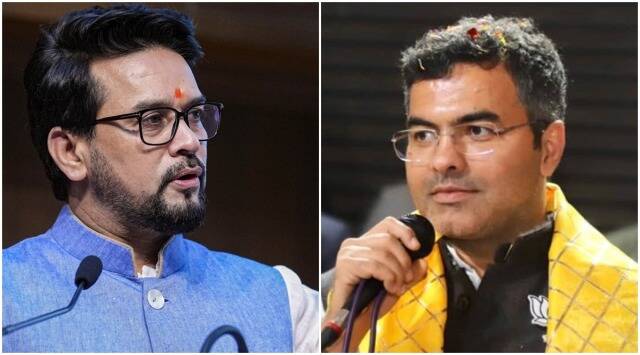Monday, the Supreme Court ordered the Delhi police to respond to the petition of CPI(M) leader Brinda Karat challenging the Delhi High Court’s order dismissing a petition against the trial court’s refusal to order the registration of an FIR against Union Minister Anurag Thakur and his BJP MP Parvesh Verma for their alleged hate speech in relation to anti-CAA protests.
A bench of Justices KM Joseph and BV Nagarathna served the city police with the notice and requested a response within three weeks.
During the hearing, the bench determined that the magistrate’s position that permission was required to file FIRs against the two BJP leaders was incorrect.
The Delhi High Court dismissed the petition filed by CPI(M) leaders Brinda Karat and KM Tiwari against the two BJP MPs for their alleged hate speech on June 13 of last year.
The high court had refused to interfere with the trial court’s order, stating that, according to the law, the competent authority’s approval is required for FIR registration in the present circumstances.
In their complaint to the trial court, the petitioners alleged that Thakur and Verma had attempted to “incite people, resulting in three incidents of firing at two different protest sites in Delhi.”
The petitioners claimed that on January 27, 2020, at a rally in Rithala, the national capital, Thakur incited the crowd to chant an incendiary slogan — “shoot the traitors” — after attacking anti-CAA demonstrators in Shaheen Bagh.
On January 28, 2020, they claimed Verma also made an incendiary speech against the Shaheen Bagh protesters.
The trial court invalidated the petitioners’ complaint on August 26, 2021, because it could not be sustained because the necessary approval from the central government, which was the competent authority, had not been obtained.
In their complaint, Karat and Tiwari sought FIRs against the two BJP leaders under several sections of the Indian Penal Code, including sections 153-A (promoting enmity between different groups on the grounds of religion, race, place of birth, residence, language, etc.), 153-B (imputations, assertions prejudicial to national integration), and 295-A (deliberate and malicious acts, intended to outrage religious feelings of any class by insulting its religion or religious beliefs).
They also sought action under additional IPC sections, including 298 (uttering words, etc., with deliberate intent to wound the religious feelings of any person), 504 (intentional insult with intent to provoke breach of the peace), 505 (statements conducive to public mischief), and 506 (punishment for criminal intimidation).
The utmost sentence for the offences is seven years in prison.
